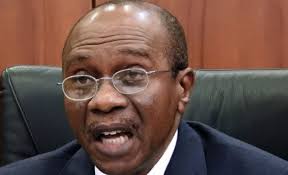Researchers and economic development analysts have attributed the improved financial sector’s contribution to Nigeria’s Gross Domestic Product (GDP) in Q1 2023 to higher charges on customers as e-transactions mainly characterized the sector’s operations in the period.
The National Bureau of Statistics (NBS) had on Wednesday in its ‘Nigeria Gross Domestic Product Q1 2023’ report disclosed that Nigeria’s real GDP grew by 2.31% (Y-o-Y) in Q1 2023, from the 3.52% in Q4 2022 and 3.11% in the corresponding quarter of last year.
From a broad perspective, analysts linked the decline in the GDP growth to the adverse effects of the cash crunch associated with the Central Bank of Nigeria’s (CBN’s) Naira redesign policy implementation experienced during the quarter.
For instance, researchers at Proshare Nigeria Limited, one of Nigeria’s leading investment research and consulting services firms in the country, noted that the Q1 GDP growth rate aligned with experts’ forecast as agriculture was the hardest hit by the cash crunch after a decline of -0.90%, the first time in years that the sector would record negative real GDP growth.
Specifically, in the firm’s ‘Analysts’ Note’ published on Wednesday noted that the sector’s contribution declined from 25% in Q4 2022 to 21.66% last quarter.
In addition, they pointed out that the NBS’ data reflected that the Services sector, which accounted for 57.9% of last quarter’s GDP, recorded a growth rate of 4.35%, adding that a closer look at the services shows that while the cash crunch reduced growth in Trade from 5.13% in Q4 2022 to 1.3% last quarter, the lowest since Q1 2021, the financial sector recorded a 21.37% growth, the swiftest growth since Q1 2022.
The analysts maintained that the gains recorded in the Q1 GDP growth rate by the financial sector was due “to higher charges received by the banks while transactions had to be conducted electronically also during the period the Nigerian Interbank Market was awash with liquidity since banks sat on idle cash balances which they committed to short-term instruments that paid double-digit returns.”
The NBS’ ‘Nigeria Gross Domestic Product Q1 2023’ report indicated that although the industrial sector experienced an improvement in growth to 0.31% compared to 6.81% in Q1 2022, it also contributed less to the total GDP in the current quarter compared to Q1 2022.
The International Monetary Fund (IMF) had in March this year retained its 3.2% FY real GDP growth forecast for Nigeria in 2023, but most analysts foresee that the country’s rising inflation rate and newly introduced taxes would adversely affect the household and cap growth at 3%.






